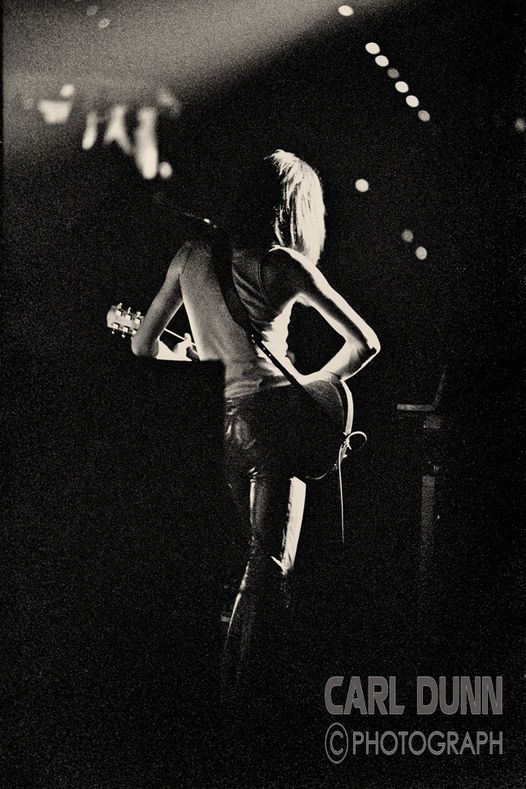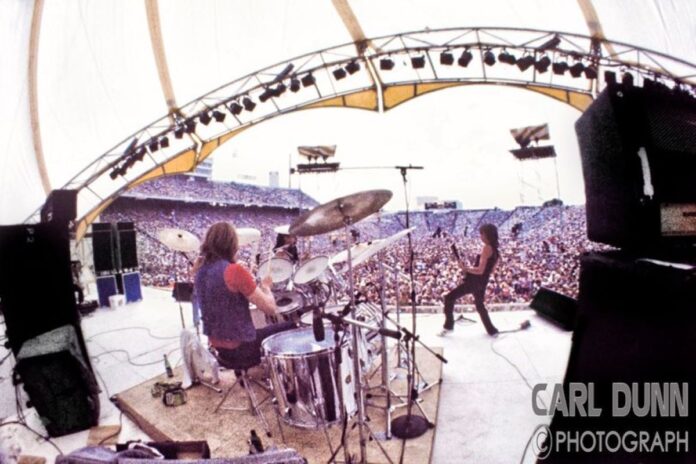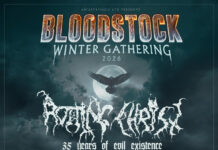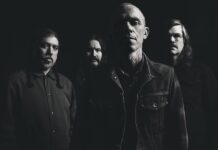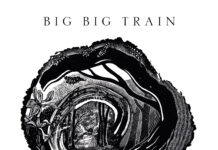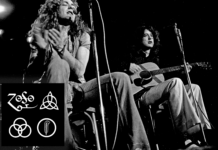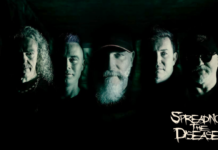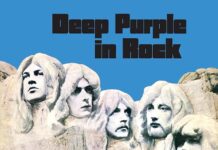Trapeze were a rock band formed in the Staffordshire area of England. Patronised initially by The Moody Blues, they would go onto become pioneers of funk rock and through a series of now classic albums attract large audiences in various states across America and elsewhere internationally. Their influence on other bands has proved to be immense, and individual members would themselves go on to join heavy weight rock acts such as Deep Purple, Whitesnake, Judas Priest, Uriah Heep and Budgie.
But Trapeze were a veritable supergroup of talent from the moment they got together back in 1969, pulling together members who were the very best on the local pop and rock scene. Vocalist Johnny Jones and multi-instrumentalist Terry Rowley had been with The Montanas, a pop act from Wolverhampton, who’d had a surprise hit over in the USA in 1967, and performed live in Europe. Pinkertons Assorted Colours had hit the UK’s Top 10 singles chart even earlier back in 1965, but their drummer Dave Holland had since joined another local act, Finders Keepers, who’d had the odd single out themselves; local hotshot guitarist Mel Galley was a member, as was a young lad called Glenn Hughes newly playing bass. Together they were the original five-piece Trapeze who made one self-titled album together, released in 1970.
Jones and Rowley would return to The Montanas, albeit the latter never truly left, as purveyors of the minutiae on old vinyl album sleeves can attest. With Hughes taking lead vocals, and now a three-piece, Trapeze began making music that reflected the times; a heavier underground sound but with a unique spin as they became inspired listening to the local R ‘n B radio stations while they trekked across North America. It was going great guns, then Deep Purple came calling, promising much and cajoling Hughes into joining them. Taking it in their stride, Galley and Holland regrouped, and went on to score their highest chart entry on America’s Billboard charts with the Hotwire album.
The guitarist having sung occasionally now also became front man, adding an additional guitarist in Rob Kendrick with Pete Wright as bass player. Subsequently, when Kendrick left, Pete Goalby joined as lead vocalist and on additional guitar, that line-up continuing through to Trapeze’s final studio recorded release, Hold On, titled Running in Germany.
While belated live releases and compilations have since seen the light of day – with those in recent years to considerable success – the world at large and even Trapeze’s most devoted fans thought that was it; there was nothing left to be heard.
But now, secrets held close – some for nigh on half-a-century – are slowly being revealed… There exist songs unheard that were recorded by Trapeze, and through much of the band’s career. They have been hidden in the vaults all this time. And now the lid has been lifted, this great rock & roll treasure chest is about to start having its contents aired with official releases thanks to surviving representatives of the band.
Beginning with Trapeze – Lost Tapes Vol 1, fans old and new will soon get to hear the following songs, many for the first time ever: ‘Cool Water’, ‘Lover’, ‘Breakdown’, ‘Don’t Let Them Push You‘, ‘Destiny‘, ‘Lights Of Tokyo‘, ‘So In Love‘, ‘Bad Kid From School’, ‘Catching Up On You‘, ‘Do You Understand’, ‘Enough Is Enough‘, ‘You’ve Got It’, ‘Who Do You Run To’ and ‘Going Home‘.
These are tracks recorded on tour, and either side of album releases; great songs that were stockpiled just never released as the various line-ups hit the ground running, playing live relentlessly; honing their craft while rarely seeing home.
However, guitarist Mel Galley did take those tapes to his elder brother Tom’s house. There, they – as co-writers of many of the band’s best-known songs – would review them, making various decisions that felt right at the time. Mel also had the foresight, to leave them with Tom for safekeeping, or as the pair joked innocently together back then, “So they didn’t get lost!”
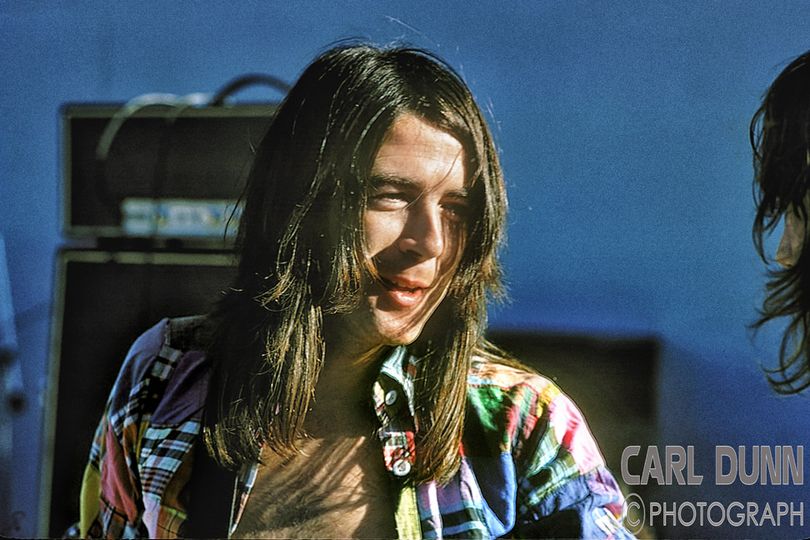
Prior to Trapeze, the brothers had played in various bands during the 60s, performing on what was then a thriving live circuit in England, albeit motorways were yet scarce and getting home from a gig could take its toll. With Tom on vocals, and barely-out-school Mel on guitar, they played the blues, rock ‘n roll and pop music each in turn, as they tuned into the latest sounds the elder brother was purchasing from record stores on import. Passing through their various line-ups, if only for an afternoon session or two, were ELP & Asia drummer Carl Palmer and Fleetwood Mac guitarist Jeremy Spencer.
After a long career that had seen him perform with Trapeze, Whitesnake, MGM, and the Blue Jays, and then come out of an apparent retirement to play briefly under his own name in his hometown, fate played a dirty trick; and succumbing to cancer, sadly, Mel Galley passed away in July 2008. However, the guitarist made it known that anything he had performed on, or had a part in writing, not then released, would require his elder sibling’s approval for it to be otherwise.
Time healing saddened wounds over his loss, and technology advancing enough to make aging recordings sound as if the band were performing live in your living room, Tom Galley is now making his brother Mel and the band’s fans’ dream come true – Working in liaison with longtime manager to the group, Tony Perry; Lost Tapes Vol. 1 is an opportunity to hear Trapeze performing with all the primal energy of young men stretching out; demonstrating there was even more untapped potential between the musicians involved than had hitherto been imagined.
“One of Mel’s last wishes, before he passed away, was that I’d get together with Tony and put all these things together,” said Tom Galley recently in conversation, “And that’s what we’ve done!”
Aside from co-writing songs for Trapeze, Tom’s own career kept him involved in the music business, and associated media industries. He’s worked with many homegrown UK acts early in their career, produced heavy metal bands like Cloven Hoof, and brought many of his considerable talents together under one banner head for his own celebrated Phenomena album series.
A new album series of his own underway, Tom Galley, took time out to sit down and discuss more about the background of his brother’s band through its various line-ups, offering an insight into how they recorded, specifically; the songs to be featured on Lost Tapes Vol. 1 but never quite giving the game away about how not a single living soul had let slip that these recorded songs had lain hidden for so long.
“Trapeze was Mel’s baby,” he expressed right from the start, when asked about his own involvement with the band. “I got more involved in the songwriting from when the disturbances started midway through the five-piece, but I never got involved on the production side as I always looked at it as Mel’s thing and it wasn’t for me to get involved in.
“It wasn’t until the later stuff, when Mel was the only one left, and we were trying to re-establish Trapeze as such, that we became more collaborative in that manner. Some of those tracks that we did, got used in Whitesnake, and of course there are the Phenomena records we worked on together.
Whether there are other tracks from that period in the vaults, Tom’s keeping firmly closed lips about today. However, the cognoscenti know that drummer Kex Gorin and keyboard player/flutist Richard Bailey (both formerly of Magnum who Tom had produced early sessions for) were involved around then, the latter going on to become involved in Phenomena.
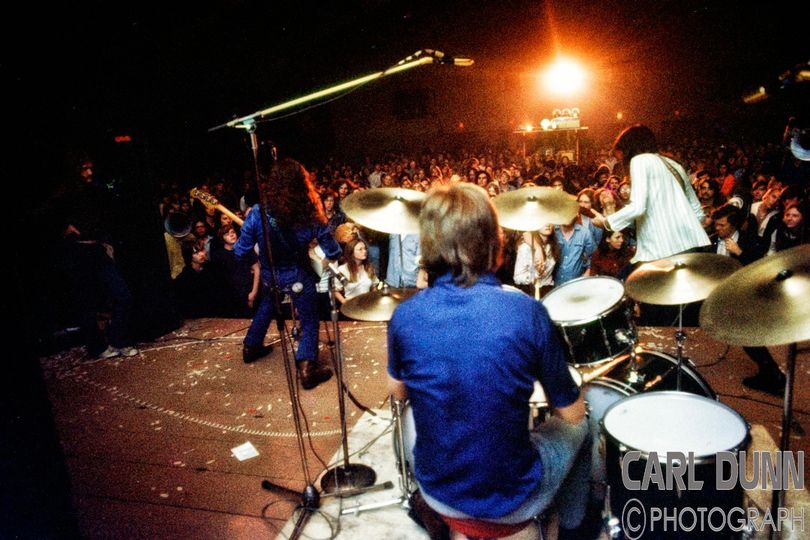
It transpires there’s a veritable flight case of Trapeze songs recorded stored on tapes that even go back to the original five-piece’s time together.
“Tony Perry, Trapeze’s manager, licensed versions of ‘Across The Water, Across The Sea‘, ‘Seafull’, ‘New Life Again’ and ‘40,000 Voices’ for what was an extended CD collection of the band’s 1970 self-titled debut album.
“However, I also had the original tapes, and had worked on those, remastering them to higher quality editions. So, we may look to see how we can best air them for a listening public in the future.”
They were the first songs that the five-piece ever recorded, though in some cases they had different original titles. ‘Across The Water, Across The Sea‘, ‘New Life Again‘ and ‘40,000 Voices’ is the names given them when they eventually saw the light of day, whereas ‘Dear Brother Jonathan‘, ‘Hang Your Head Down‘ and ‘Forty Thousand Soldiers‘ is how they’re likely to have begun, though which began as which we’re still going to have to wait a while to find out.
“’Dear Brother Jonathan‘ and ‘Forty Thousand Soldiers‘ were among the first songs Mel and I ever wrote together, around the time he joined the five-piece,” Galley revealed, backdating his co-writing involvement with Trapeze even further than anyone presumed.
Unheard for decades, those tracks, “Along with ‘Seafull’ – A Glenn track and a different version to the one recorded by the three-piece line-up that appeared on the Medusa album,” were certainly heard by some influential individuals however. The Staffordshire lads were being sounded out by some blokes from down the way in The Midlands, more bluntly The Moody Blues in Birmingham, who’d just set up their own record label.
“Those four songs were on a tape that went to Threshold Records, and they basically got the band the Threshold deal. They were recorded in a little four-track studio just outside Wolverhampton, a place called Albrighton in the late 1960s.
“With these songs you can hear where they came from and even the recording techniques that were available then. Personally, I didn’t have a lot to do with the band then, except for working with Mel. Vocalist Johnny Jones also worked a lot together with Mel, co-writing, and so he also became involved in completing ‘Dear Brother Jonathan‘.
“The reason these songs weren’t on the debut album is probably because of The Moody Blues guys, who owned Threshold Records, and maybe they didn’t think they were suitable for the direction they saw the band going. Their bass player, John Lodge, actually produced the band’s first two albums.
“The guy who had a lot to do with these first four tracks in the five-piece was Terry Rowley. He influenced the band because he, basically, could play anything, and he came from a band called The Montanas where they had huge vocal pop harmonies. He played keyboards, guitar and flute on the first album. He was with the band even when they were a three-piece, ending up being their sound engineer on a lot of the American tours.”
It’s also worth noting that The Moody Blues would take Trapeze out as support on what would be the latter’s first USA tour. Years later, when Heywood and Lodge formed their spin-off band Blue Jays, they brought in Galley, Holland and Rowley as their touring band.
The elder Galley brother was not present at those earliest band recordings, but attended “some, later on”. As noted, he was already contributing to the writing pool, and his brother obviously valued his opinion. “At the time, Mel, was single, so he used to come up to my house and he would bring the record tapes Trapeze had recorded on a reel-to-reel and we’d listen to them together,” Tom recalled, and here, in the simple act of sharing – with sibling pride and possibly the kind of honesty one can’t with even the best of friends – events would start to unfold that half a century later and a joke about “safe keeping” has led us to Lost Tapes Vol. 1.
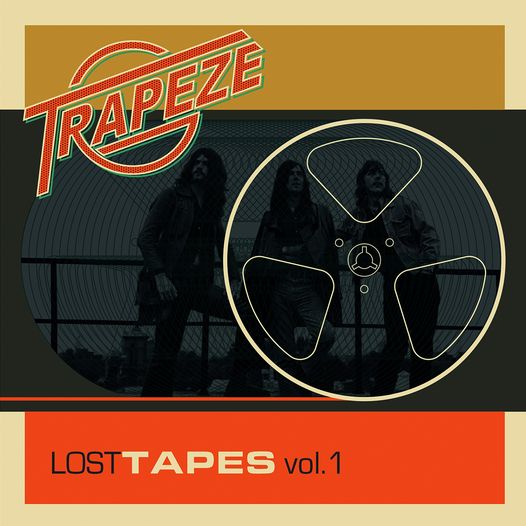
If one is expecting this new record to unfold with the somewhat legendary Galley, Hughes & Holland three-piece line-up as its earliest recording, there’s another surprise.
“’Destiny‘ and ‘Lights Of Tokyo’ came about when the five-piece was, shall we say, fragmenting. They were some of the first trial songs for the three-piece – The writing was on the wall as Mel, Dave and Glenn wanted to go somewhere else musically.
“The Moody Blues’ Justin Hayward was big friends of Eric Stewart of 10cc, and at the time they had a band called Hotlegs before they became 10cc. They did the song Neanderthal Man in 1970, and this was around the same time. We recorded those two songs up at Strawberry North, in 10cc’s studio with Eric Stewart engineering.” Quite a journey back then, “Dave drove Mel, myself and Terry Rowley who played bass and piano on the songs up for those sessions.” Thus, we learn of a unique studio-only version of Trapeze as a trio.
“Terry played a brand-new Fender Rhodes piano which he put a pint of beer on and managed to knock it over into the piano!” Tom recalled, smiling to himself at the memory.
“’Destiny’ and ‘Lights Of Tokyo‘ were songs that were overlooked. It wasn’t because they were rubbish songs. The band was never massive in the UK, but they were especially big in the southern states of America and they were as big a pull as Deep Purple. I remember we recorded Destiny quite a few times, but for some reason it never ended up on an album.” Even so, these songs are important pathfinders on the band’s journey for they pre-empt the heavier rock & progressive sounds that the band would find acclaim with, commencing with 1970’s Medusa album.
As for that official changing of the guard within the band, Tom, naturally enough, heard it first hand from Mel, and with it news that he had better sharpen his pencil and get writing.
“The writing was on the wall as Mel, Dave and Glenn wanted to go somewhere else musically and the transition from a five-piece was done very quickly and the first three-piece album, Medusa, came about fairly soon after – Mel came to my house, because we always lived near each other and we were in the garden, and he said: ‘We’re a three-piece now and we gotta write a new set and some songs to be on the album’. The majority of the songs Mel and I wrote for the Medusa album were written in that back garden in about ten days. They were put together really quickly and were then played quite intensely on live gigs before they went into Morgan Studios to record the album.”
From thereon it was all gun blazing, the Galley brothers’ Medusa album co-write ‘Black Cloud’ being released as a single, and gaining airplay, as they smashed the doors open across America and began pioneering a heavy funk rock sound that would later be taken up by The Red Hot Chilli Peppers, Extreme and others, back in the 70s Galley, Hughes and Holland barely had time to catch their breath while stepping into studios to lay down several unique songs that you’ll find on this collection.
On the trio’s older tracks featured on Lost Tapes Vol 1, with songs like ‘Bad Kid From School‘ and ‘Enough Is Enough‘ it’s their classic sound you’ll relish hearing afresh.
“They were all songs that were recorded while they were on tour in America at various studios. These were all done with Mel, Dave and Glenn. They were tapes I found and spent quite a bit of time with. I mean we’re talking about tapes from the early 70s and there’s the oxidization to consider. Luckily, I was able to get what you now hear out of those old tapes. That funky heavy rock is what I call the Trapeze style in a way.
“Playing guitar in a three-piece is totally different from playing guitar when you have two guitars in the band. You have to do a lot of filling and your style is totally different. When people talk about Mel, I always say; he never played too many notes because his style was what I call a mix of chord and notation. You have to know when to go on to the notation when the drums and bass are pushing. It’s a style of its own.
“’Catching Up On You‘ has a long intro, and it started off as an instrumental but they decided to add vocals. I believe ‘Bad Kid From School’ is a Glenn song and ‘Catching Up‘ is a Glenn and Mel song, ‘Do You Understand‘ and ‘Enough Is Enough‘ were Mel and my own songs. There are another three to four songs from this session as well,” Galley revealed.
These tracks embrace both powder-kegged bravado performances as well as the band’s more nuanced emotional side – With nothing off limits as the musicians involved can be heard exploring their potential both collectively and as individuals. Powerful with deft time changes, tinged with subtly or bleeding out ferociously; belting rockers find them surging forward as one only for a propulsive rhythmic heartbeat to take hold over which solos soar.
When this version of the band underwent one of their intermittent reformations in the 90s, they also began to lay down tracks. Strident hard rocker ‘Breakdown‘ on Lost Tapes Vol 1 comes from that latter period, the song sounding immensely fresh and contemporary even today. “This is from what we might call the second coming period, around ’93. The three-piece recorded it at Garage Studios, with Glenn singing, where they also recorded the original version of Homeland.” The latter a rare Hughes-Galley co-write surfacing on Welcome To The Real World: Live At The Borderline a live album released in ’93 documenting the previous year’s tour, then Hughes’ own solo album From Now On… the following year.
From that same ’92 period, with ‘Don’t Let Them Push You’ it’s a case of “More cowbell!” from Holland while Galley’s guitar weaving tirelessly while he also takes on lead vocal duties.
Following Hughes’ initial aforementioned departure, when he joined Deep Purple, this is when Galley first took on the dual roles of both singing and playing guitar fulltime, as Trapeze steered a course towards a productive ongoing career with him at the helm and Holland driving hard from his drum stool behind, while bringing in bass player Pete Wright and second guitarist Rob Kendrick.
“Mel used to do individual things with the five-piece, but he got to a point where when Glenn left, and he wasn’t gonna let the band fall apart; he took on the vocal duties,” said Tom of what actually became their most successful period.
This was their 1974 Billboard charting Hot Wire era, finding them particularly prolific laying down tracks in studios like Island in the years either side. On Lost Tapes Vol. 1, ‘Going Home‘ is a fiery arena-ready alternative rendition of that album’s classic pinpointing exactly why The Rolling Stones had Trapeze open for them back then.
Likewise, from around the same period, we have ‘Lover‘ and this finds the guitarist in particularly good form on vocals. Blending funk rock with a little soul, this so should have been a single, back in those days when music crossed the airwaves without fear of genre-boundaries, and only good taste mattered.
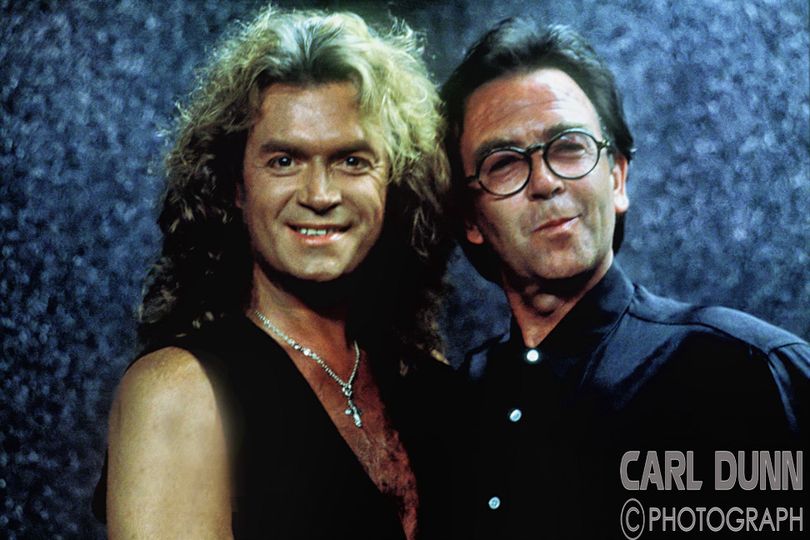
“That’s an interesting track,” said Tom, regarding ‘So In Love‘, a melodic number that was recorded a while later. “If you listen to ‘Chances‘ on the second self-titled Trapeze album it’s the same song with different lyrics. There’s also another mastered version with steel guitar on it. I however put this one in because what happened was, Glenn was in Deep Purple at the time, and he came into the studio, I think it was the Island studios we were in, and he did one of his Glenn things – I’d like to sing the song but I wanna change the words. But I thought it would be nice to have him on the album and I wasn’t overly fussy. The song is exactly the same, but with some different words on ‘Chances‘ whereas it’s Mel singing ‘So In Love‘.
“Mel’s voice wasn’t like Glenn’s – but whose is? – His voice is one of the wonders of the world! Mel was more of a melody singer and Glenn got into the, what I call, screaming era. Mel wasn’t a screamer because he didn’t have the strength of voice to be a screamer.
It’s funny, when I worked with Glenn on Psychofantasy he said he should’ve been on Hot Wire coz he still thinks it was a great album and he said that he should’ve stayed with Trapeze because there were six months away from breaking huge in America.”
Be that as it may, perceived hindsight aside, both actually prospered from the split, and Trapeze worked steadily in the years ahead, even as the music industry itself went through fads. Despite which, Tom also noted: “There were times when the band was in a floating period, like between the break-up of the three-piece and foundation of the four-piece, where it was just Mel and I writing new material. And also tracks, recorded either side of record deals.”
During such a downtime, Kendrick would go onto join Welsh heavy rock band Budgie, and later briefly be involved in Cloven Hoof. Not long after, Tom was working with Fable singer Pete Goalby on recording a single, and a lightbulb went on.
“The reason Mel didn’t sing more live wasn’t because he didn’t have the voice, but he just couldn’t sing live three nights in a row,” Tom admitted on how multi-tasking could take its toll on his brother. Thus, it became apparent, that Goalby might be the man to help resolve that situation. Stepping up to the mic and oozing impressive vocal charisma he allowed Galley a chance to ease his throat, and also established a new harmony vocal side to the band in a late 70s golden patch.
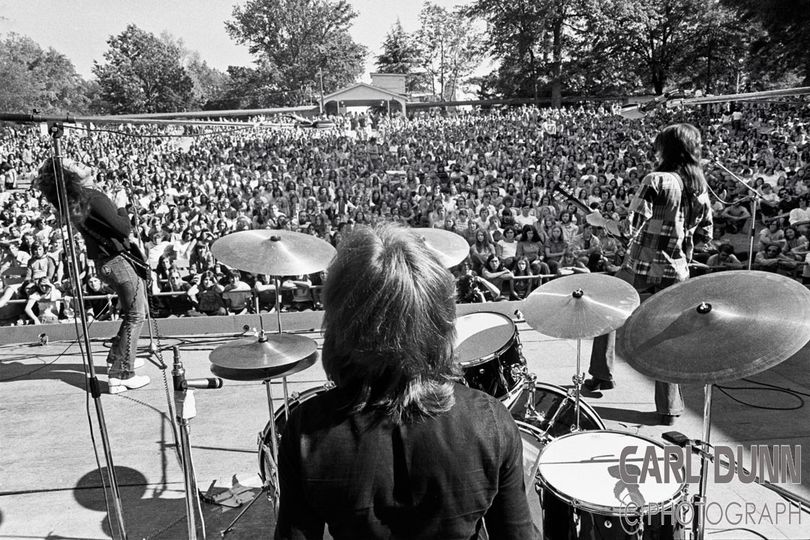
This powerful line-up who would go onto record Hold On, before Dave Holland left to join Judas Priest, and young Steve Bray took up the drum stool for Live in Texas: Dead Armadillos. By the time that last one came out, Goalby had joined Uriah Heep, taking them through an early 80s rejuvenated period, Bray apparently serving a brief stint with one of their former singers in The Byron Band, and acts as diverse as Toyah Wilcox and The Lambrettas. With Wright, also having recorded with Robin George, but now based in the USA, Mel Galley decided to take up the offer made to him once before, and joined Whitesnake.
Lost Tapes Vol 1 features a most solid selection of tracks from before the band folded. “’You’ve Got It‘ and ‘Who Do You Run To‘ are with Pete Goalby on vocals,” said Tom, of two numbers that deliver with hefty mainstream appeal. “’You’ve Got It‘ is a Mel and mine co-write and ‘Who Do You Run’ To is a Pete song. They were recorded around the era of the Hold On album in 1978-79.”
There’s also ‘Cool Water‘ where it’s slick, funky with a blues rock edge that’s sat somewhere in between The James Gang and Little Feat in their prime. “Mel wrote and sang on an original version, but this is a version with him and Pete both singing. It also had Terry Rowley on keyboards,” recalled Tom, noting the ongoing bonds between former members, before astutely noting in conclusion:
“This collection of recordings show not only how good the various line-ups were, but capture the passion and excitement of the creation of the songs themselves.”
Never a band who stood still. These recordings are often paths less taken. Had time, circumstances and other opportunities not proved otherwise we can only imagine what heights Trapeze would have reached… As listeners will discover, Lost Tapes Vol 1, features Trapeze songs as classy as any on their previous rock album releases, with some likely to become classics still!
Produced by Tom Galley, Lost Tapes Vol 1 is due out from Metalville Records on 24th November, featuring exclusive images of the band by famed rock photographer Carl Dunn, with a suitably retro-grooved cover and cool interior design by Marcus Galley.
(Feature © by Paul H Birch, photos © Carl Dunn, incorporating an original interview by Janne Stark).
